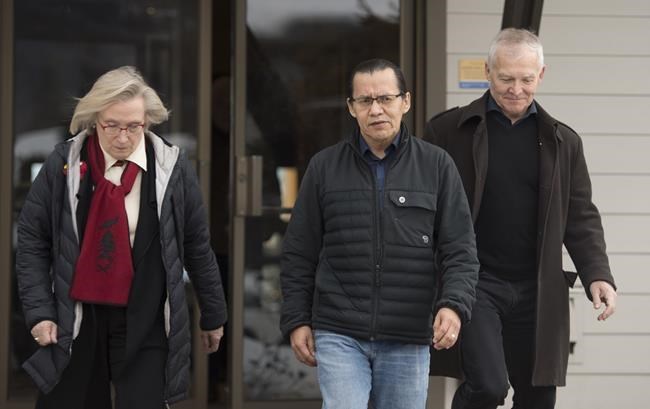SMITHERS, B.C. — British Columbia’s minister of Indigenous relations and reconciliation says the progress on a memorandum of understanding signed last year marking the start of a new relationship between the hereditary chiefs of the Wet'suwet'en Nation and the federal and B.C. governments has been slower than the parties would have liked.
In a news release Friday, Murray Rankin said the pandemic and the complexities of the negotiations are behind the slow progress.
He has met with hereditary and elected Wet'suwet'en leadership over the past two days, and that the parties are committed to implementing the title and rights in the memorandum, he said.
A spokesman for the hereditary chiefs opposed to the pipeline project could not be reached for comment.
The memorandum of understanding was negotiated between government representatives and the hereditary chiefs who oppose Coastal GasLink's pipeline going across the First Nation's traditional territories.
The project caused countrywide rail blockades and marches early last year.
Gary Naziel, a Wet'suwet'en hereditary subchief who supports the pipeline project, said he is "glad" the progress is slow because more people need to know the contents of the memorandum.
"Everybody needs to be in the loop of it," he said in an interview, adding he learned about the minister's visit Friday morning.
Naziel, who is also an elected councillor of the Witset First Nation on Wet'suwet'en territory, is in favour of the pipeline because he said it will help the economy in the region. People already know they have title and rights to the land but what needs to be discussed is how it is developed, he said.
The memorandum of understanding doesn't address Wet'suwet'en opposition to the pipeline, which is part of a $40-billion liquefied natural gas export terminal project in Kitimat on B.C.'s northern coast, but it states that the federal and B.C. governments recognize the First Nation's rights and title are held under their system of governance.
It also placed timelines when it was signed in May 2020 over a 12-month period on negotiations affecting jurisdiction of land-use planning, resources, water, wildlife, fish, and child and family wellness, among other things.
The document says Wet'suwet'en title to the territory and their right to govern it are recognized by Canada and B.C. This means the governments won't be able to "ever again" approve a project without the First Nation being a part of the decision.
Five elected Wet'suwet'en councils signed agreements with Coastal GasLink, allowing the 670-kilometre natural gas pipeline to be built through their territory in northern B.C. to Kitimat.
Naziel said decisions are being made behind closed doors, which is not the traditional way of doing things.
"I've been saying that for the last year," he said. "That's not our way. ... I'm still dissatisfied with the whole process."
This report by The Canadian Press was first published Sept. 3, 2021.
The Canadian Press



